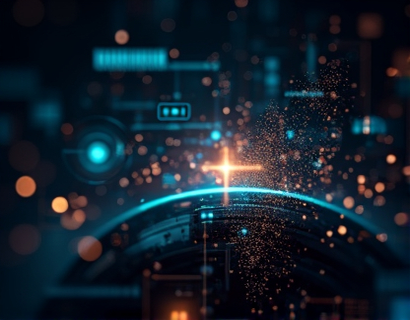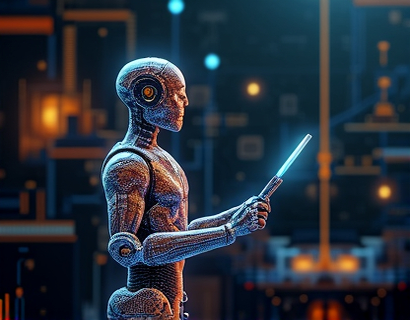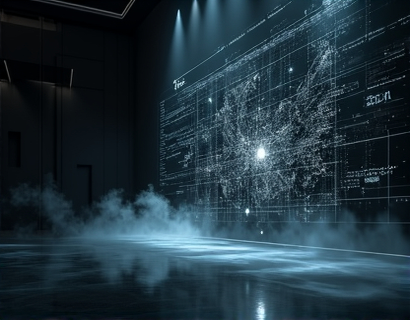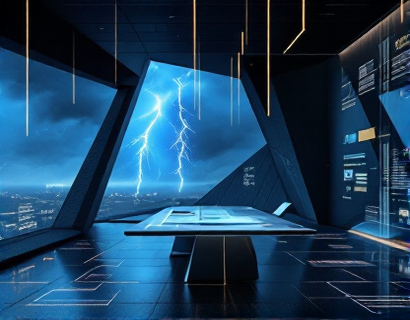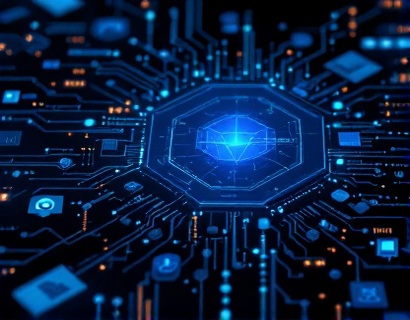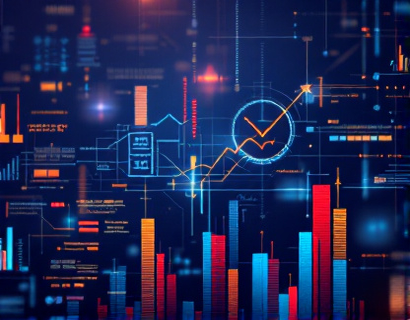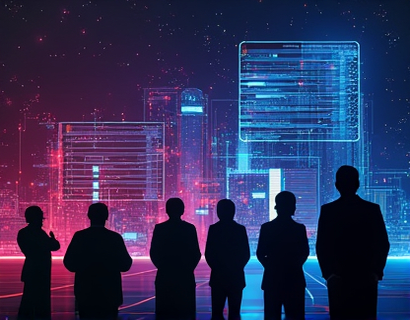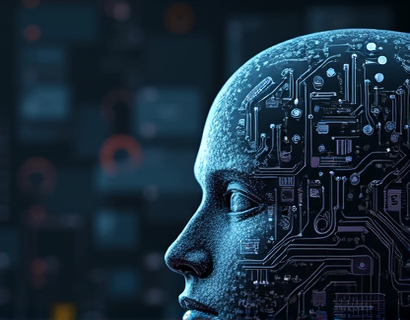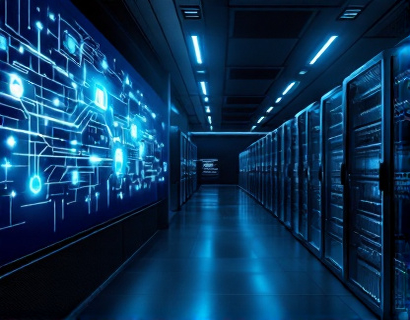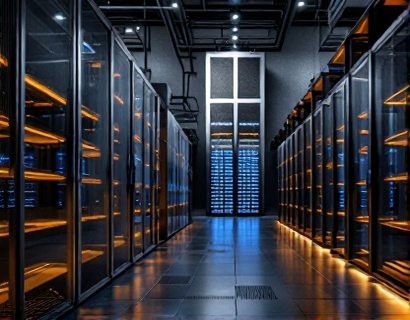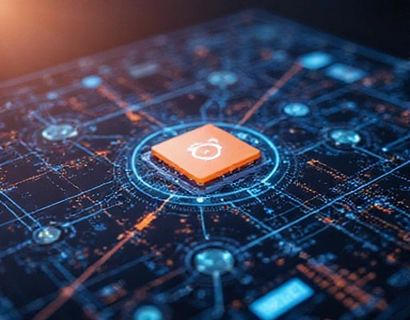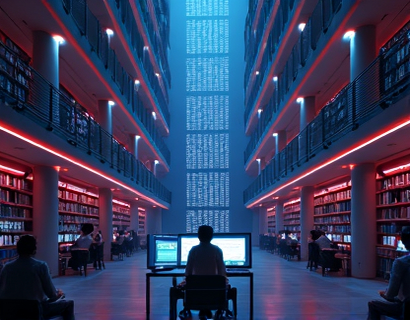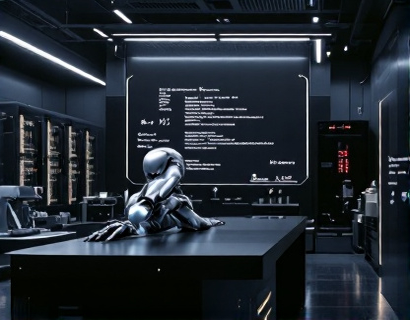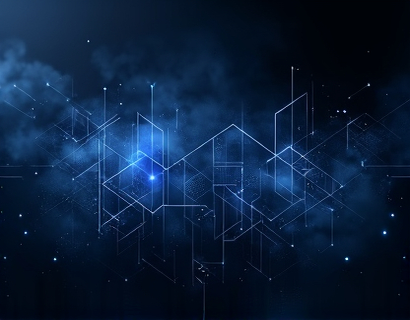Empowering Web3: A New Era of Community-Driven Governance with Decentralized Autonomous Organizations
The advent of Web3 marks a significant shift in the digital landscape, moving away from centralized control towards a more decentralized and community-driven model. At the heart of this transformation are Decentralized Autonomous Organizations (DAOs), which are redefining how protocols are managed and governed. This article delves into the concept of DAOs, exploring how they empower communities, enhance collaboration, ensure transparency, and scale efficiently. By understanding these principles, we can better appreciate the potential of Web3 to create a more interconnected and innovative digital ecosystem.
Understanding Decentralized Autonomous Organizations (DAOs)
DAOs are organizations that operate through rules encoded on a blockchain. These rules dictate how the organization functions, including decision-making processes, fund management, and member interactions. Unlike traditional organizations, DAOs do not rely on a central authority or hierarchy. Instead, they are governed by smart contracts, which are self-executing contracts with the terms of the agreement directly written into code. This decentralized approach ensures that no single entity has control, fostering a more democratic and transparent governance model.
Community-Driven Governance
One of the most revolutionary aspects of DAOs is their community-driven governance model. In a DAO, members have a say in the decision-making process through token-based voting. Each member holds tokens that represent their stake in the organization, and these tokens grant voting rights. This system democratizes governance, allowing a broader range of voices to contribute to the direction of the project. The transparency of blockchain technology ensures that all proposals, votes, and outcomes are publicly visible, reducing the risk of corruption and increasing trust among members.
The community-driven approach also fosters a sense of ownership and responsibility among members. Since decisions are made collectively, members are more likely to be invested in the success of the project. This alignment of interests can lead to more innovative and sustainable solutions, as diverse perspectives are considered and valued. Moreover, the open nature of DAOs encourages collaboration and knowledge sharing, further enhancing the collective intelligence of the community.
Enhanced Collaboration
DAOs facilitate enhanced collaboration by breaking down silos and fostering a culture of openness and cooperation. In traditional centralized models, departments and teams often work in isolation, leading to fragmented efforts and duplicated work. In contrast, DAOs promote cross-functional collaboration, as members from different backgrounds and expertise come together to achieve common goals. Smart contracts automate workflows and ensure that tasks are completed efficiently, reducing bureaucratic overhead and accelerating project timelines.
The transparency of DAOs also plays a crucial role in enhancing collaboration. When all activities and decisions are recorded on the blockchain, members can track progress in real-time and understand how their contributions fit into the larger picture. This visibility builds trust and accountability, encouraging members to work more effectively together. Additionally, the ability to propose and vote on new ideas ensures that innovative solutions are not only considered but also implemented when they gain sufficient support.
Transparency and Trust
Transparency is a cornerstone of DAOs, and it is achieved through the immutable nature of blockchain technology. All transactions, proposals, and votes are recorded on the blockchain, creating an unalterable and transparent ledger. This level of transparency builds trust among members, as they can verify the integrity of the organization's operations at any time. The immutability of blockchain also prevents tampering and fraud, ensuring that the organization operates as intended.
Transparency extends beyond just financial transactions. DAOs often maintain public logs of discussions, decisions, and action items, providing a clear and accessible record of the organization's activities. This openness not only holds leaders accountable but also empowers members to contribute meaningfully to the governance process. When members feel confident in the transparency of the organization, they are more likely to engage actively and contribute their best efforts.
Scalability and Efficiency
Scalability is a critical challenge for many blockchain projects, but DAOs are designed to address this issue through decentralized and automated processes. Smart contracts can handle a large volume of transactions and decisions without the need for manual intervention, reducing the risk of bottlenecks and increasing efficiency. This automation allows DAOs to scale seamlessly as the community grows, ensuring that the organization can adapt to new challenges and opportunities.
Moreover, the decentralized nature of DAOs means that they can operate globally without the constraints of geographical boundaries. Members from around the world can participate in governance and contribute to the project, leveraging a diverse pool of talent and resources. This global reach not only enhances the organization's resilience but also fosters a more inclusive and diverse community.
Case Studies and Real-World Applications
Several projects are already leveraging DAOs to transform protocol management and governance. One notable example is the SushiSwap DAO, which has successfully implemented a community-driven governance model for one of the largest decentralized finance (DeFi) platforms. Members of the SushiSwap DAO have the power to propose and vote on changes to the protocol, including fee adjustments and new feature implementations. This approach has led to increased user engagement and a more resilient ecosystem.
Another example is the Aragon platform, which provides a suite of tools for building and managing DAOs. Aragon enables organizations to create custom governance models, manage token distributions, and facilitate decision-making processes. By providing the infrastructure for DAOs, Aragon has empowered numerous projects to adopt community-driven governance, further accelerating the adoption of decentralized models in the Web3 space.
Challenges and Considerations
While DAOs offer numerous benefits, they also come with unique challenges that need to be addressed. One of the primary concerns is the technical complexity involved in setting up and managing a DAO. Not all communities have the expertise to develop and maintain smart contracts, which can be a barrier to entry. However, platforms like Aragon and others are working to simplify this process, making DAOs more accessible to a broader audience.
Another challenge is the potential for governance attacks, where malicious actors attempt to manipulate the voting process or exploit smart contract vulnerabilities. To mitigate these risks, it is essential to follow best practices in smart contract development, conduct thorough audits, and foster a culture of security within the community. Education and awareness are key to ensuring that members understand the risks and know how to protect the organization.
The Future of Web3 Governance
The adoption of DAOs is poised to play a pivotal role in shaping the future of Web3. As more projects embrace community-driven governance, we can expect to see a more decentralized, transparent, and collaborative digital landscape. The success of DAOs in managing complex protocols and fostering innovation demonstrates the potential of this model to revolutionize how we organize and govern in the digital world.
Looking ahead, the integration of DAOs with other Web3 technologies, such as non-fungible tokens (NFTs) and decentralized finance (DeFi), will further enhance the capabilities of these organizations. The synergy between these technologies will create new opportunities for decentralized applications, content creation, and economic models, solidifying the foundation of a truly decentralized internet.
Joining the movement towards a more collaborative and future-proof Web3 ecosystem involves understanding and supporting the principles of DAOs. By participating in community-driven governance, individuals can contribute to the development of more resilient and inclusive digital platforms. The future of Web3 is not just about technology; it is about building a community that values transparency, collaboration, and decentralization.




